The summer season is upon us and, per each year, we’ve dug beyond studio offerings (though a few potential highlights remain) to present an in-depth look at what should be on your radar. From festival winners of the past year to selections coming straight from Cannes to genre delights to, yes, a few blockbuster spectacles, there’s more than enough to anticipate.
Check out our picks below and return for monthly updates as more is sure to be added to the calendar.
Riceboy Sleeps (Anthony Shim; May 2)
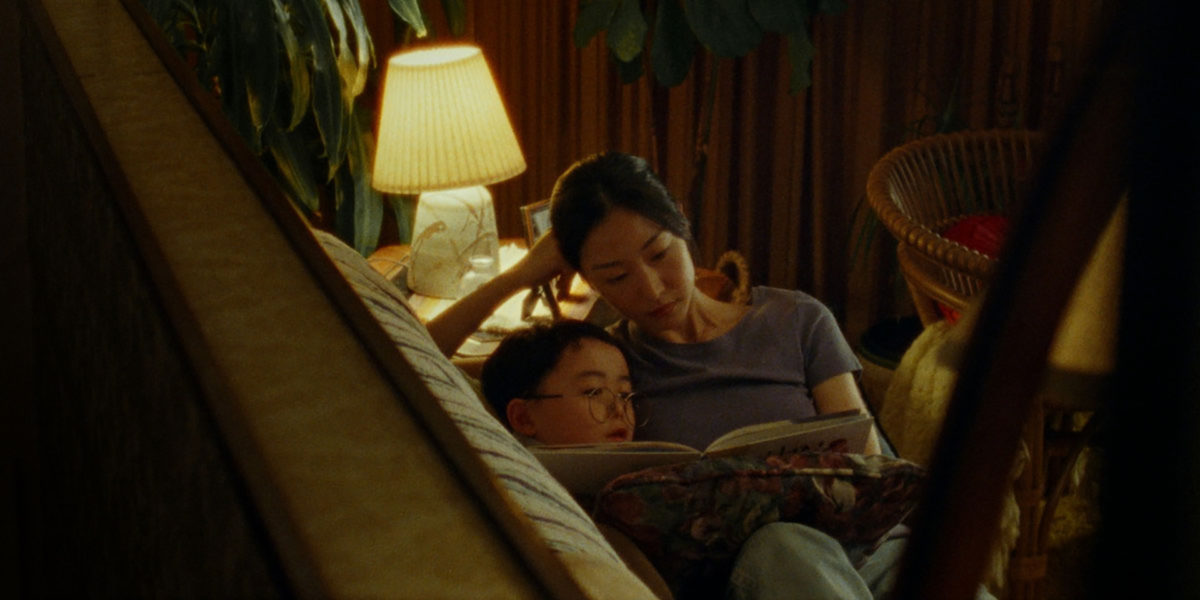
So-Young (Choi Seung-yoon) didn’t want to leave South Korea. She had no choice. The father of her newborn son committed suicide and, as an orphan who was never adopted, she had no other family. So, with nowhere to turn and a boy who couldn’t legally become a citizen due to being born out of wedlock, she immigrated to Canada to start anew. There she would build a home for the two of them and a wall in front of her past. Questions about Dong-Hyun’s (Dohyun Noel Hwang at six and Ethan Hwang at sixteen) father were delayed indefinitely and ultimately left unanswered no matter how many times he asked. So-Young only wanted to look forward and, eventually, so did Dong-Hyun. Until their future together was unceremoniously stolen away. – Jared M. (full review)
Chile ’76 (Manuela Martelli; May 5)

Manuela Martelli’s debut film opens with a sequence that perfectly captures the tone and themes Chile ‘76 will explore. Carmen (played by Aline Kuppenheim) is at a paint shop, choosing and mixing the color that she’ll use at the beach house she has with her husband, a shift head at one of the most important medical institutions in Santiago, Chile’s capital. While browsing an almanac with pictures of European cities, pointing at colors of sun-kissed buildings, we can hear a disturbance outside: a woman is being pulled over by the military and yells as she’s taken away. – Jaime G. (full review)
Unrest (Cyril Schäublin; May 5)

The best word to describe Unrest is “clever.” It isn’t on the level of the artisans and thinkers it lovingly portrays––all the graphers (geo, carto, photo) and the ists (social, anarch, horolog, and so on)––but not so far off; and more than enough to be worthy of their story. Consider the title’s neat duality. “Unrest,” as the film explains, is another name for a wristwatch’s balance wheel: an instrument that, working in tandem with the spiral and escapement, creates the mechanism that makes it tick. Then there is the other kind. – Rory O. (full review)
Queens of the Qing Dynasty (Ashley McKenzie; May 5)

Being blind to Ashley McKenzie’s oeuvre let this surprise from almost moment one––it’s truly the closest I’ve seen an English-language feature come to evoking institutional decay and its effects on personal struggle à la Pedro Costa. Remarkable comparison for a second feature, but Queens––its compositional instinct, durational sense, relentless commitment to performance style––has stayed in the year-plus since my viewing. One expects its rep to build over time, ideally as McKenzie debuts a follow-up. – Nick N.
BlackBerry (Matt Johnson; May 12)

In BlackBerry, the rise of a blue-chip tech company sets the stage for the dissolution of a longstanding friendship. Sound familiar? Just wait ‘til you hear the score. Directed by Matt Johnson, it tells the true story of Mike Lazaridis and Douglas Fregin, software engineers who founded the company RIM in the mid-80s and later invented a cellphone that could handle email. The film begins on the day when they meet Jim Basillie (Glenn Howerton), a Rottweiler who, alongside Lazaridis’ genius, turned RIM’s invention (only later christened BlackBerry) into the world’s most ubiquitous mobile device––at least for a time. – Rory O. (full review)
L’immensita (Emanuele Crialese; May 12)

In films like Volver, Parallel Mothers, Everybody Knows, and now L’immensità, Penélope Cruz has cornered the market on playing mother figures that are both larger than life and movingly earthy. As Clara, the loving Spaniard expatriate trying to raise her children while staying married to an unfaithful man in 1970s Rome, Cruz does some of the best work of her already incredible, multilingual career. – Jose S. (full review)
The Starling Girl (Laurel Parmet; May 12)

Laurel Parmet’s The Starling Girl finds the first-time feature director treading well-worn terrain. Starring Eliza Scanlen and Lewis Pullman as Jem Starling and Owen Taylor, a 17-year-old and her youth pastor, respectively, the film looks at the very-Christian idea of guilt, blame, and sexual desire. Parmet, who also penned the script, crafts a young woman who wants to explore, without the best role models, the struggle to reconcile her actions with her God. – Michael F. (full review)
Master Gardener (Paul Schrader; May 19)

There is a paradox at the heart of Master Gardener. In their respective worlds––one of abstinence and iconography; the other of money and risk––priests and gamblers are kind of sexy. In their own ways, so are gigolos, drug dealers, porn stars, sex addicts, even taxi drivers. Gardeners? For all their charms, maybe less so. The latest from Paul Schrader rounds out an idiosyncratic trilogy: without breaking the mould, and for three films in a row, the director has placed his man-in-a-room archetype into the fraught, divided milieu of contemporary America. With First Reformed and Card Counter, Schrader could bank on audiences already being attuned to the quasi-culty vibes of his characters’ extreme callings. Master Gardener, the story of a diligent horticulturist, has a bit more heavy lifting to do; but there’s fun to be had in the labor. – Rory O. (full review)
Sanctuary (Zachary Wigon; May 19)

How well do you know your regular sex worker? How well do they know you? What Hal (Christopher Abbott) and Rebecca (Margaret Qualley) share may have begun as a source of fun, but it’s obviously evolved into something much deeper. It’s now akin to therapy and they both know it to be true. The problem, however, lies in how they interpret what these sessions actually provide. Does Hal need Rebecca to come and validate his fetishized insecurities so he can achieve orgasmic release? Or does she do it to empower him with the necessary confidence to lead a company that’s suddenly fallen to him upon the death of his domineering father? Can either of them really know for sure? Not with money involved. Honesty demands higher stakes. – Jared M. (full review)
The Cow Who Sang a Song Into the Future (Francisca Alegria; May 19)

Chilean filmmaker Francisca Alegria’s The Cow Who Sang a Song Into the Future opens on pensive shots of the river and its inhabitants, most of whom are dead. As the dying and already passed fish sing a song of sadness, a woman, motorcycle helmet in tow, rises from the water. She walks aimlessly, hopping on a local bus and appearing outside a story, scaring her ex-husband into enough anxiety to land him in the hospital. The next 90 minutes of Alegria’s meditative drama exist largely in silence or one-sided conversation––people confronting their past like a monster that grows with each passing day. – Michael F. (full review)
You Hurt My Feelings (Nicole Holofcener; May 26)

In a landscape that has mostly lost its taste for comedy, every Nicole Holofcener film feels like a revelation. While she has more on her mind than just making audiences laugh, her gift for humor is undervalued, and her latest, You Hurt My Feelings, is as perceptive, insightful, and funny as her best work. The stakes may be considered low, but that is only in comparison to the ill-perceived notion that audiences need to be satiated with overcomplicated, heightened narratives that stretch beyond quotidian human issues. For these characters the stakes couldn’t be higher, and it’s refreshing to see a director examine the major emotional consequences of small but significant actions. – Jordan R. (full review)
Will-o’-the-Wisp (Joao Pedro Rodrigues; May 26)
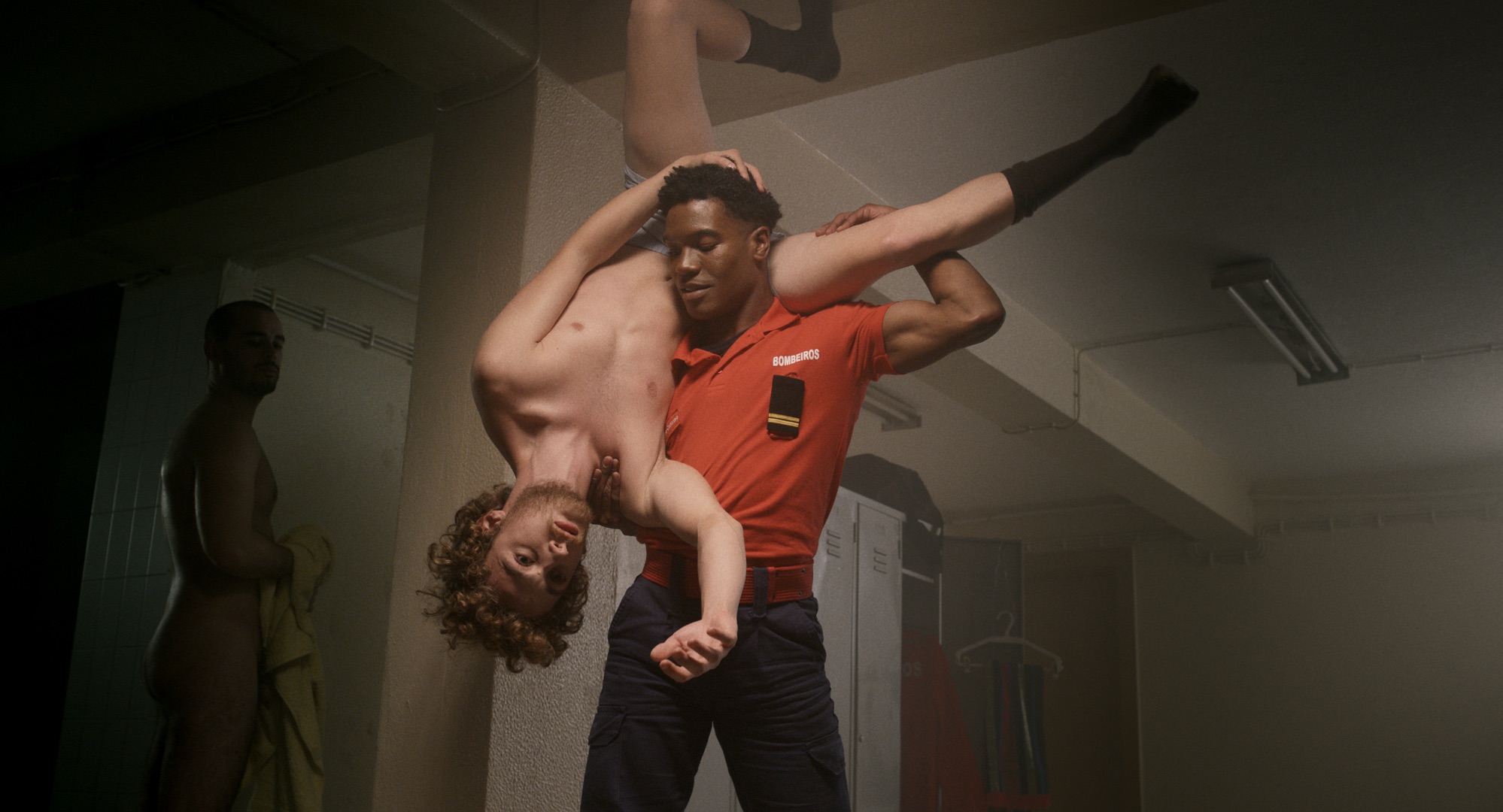
A hopeful and bittersweet plea for a better future, Joao Pedro Rodrigues’ 67-minute oddity Will-o’-the-Wisp covers three periods in the life of Alfredo, a “Prince” of Portugal. If a little conceited and cutesy at times––perhaps “a musical comedy by” wasn’t literally needed to be specified in the opening credits––this a film that manages to remain likable throughout. Seemingly an accomplishment for something with so much on its mind. – Ethan V. (full review)
Reality (Tina Satter; May 29)
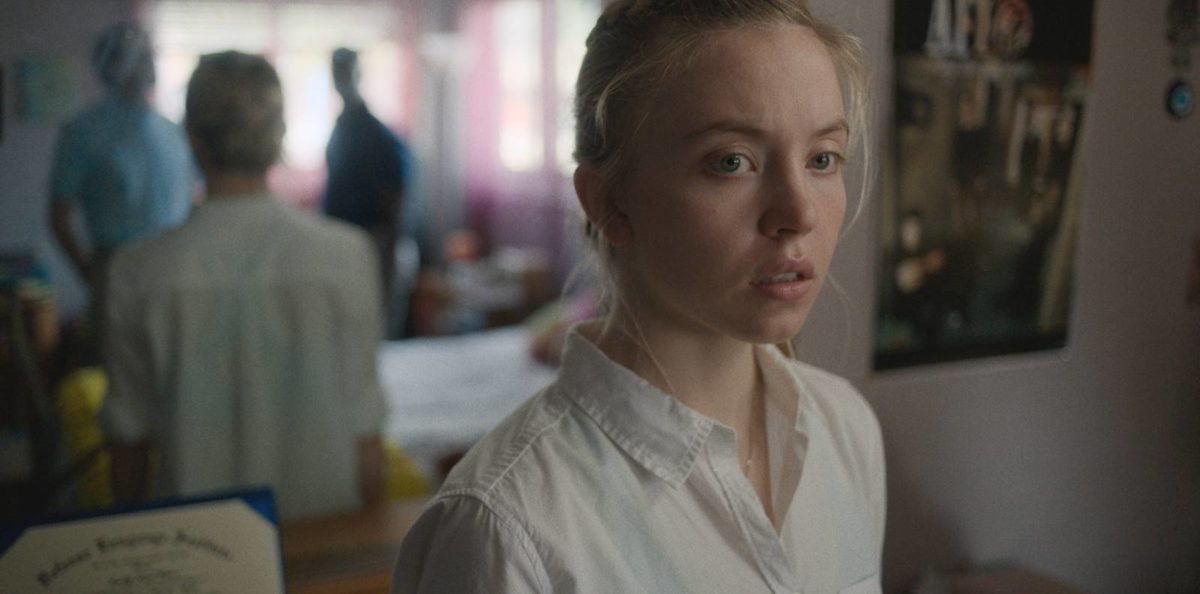
A good conceit can go a long way. In 2017, a former U.S. Air Force member-turned-NSA translator named Reality Winner leaked a document to The Intercept exposing Russian interference in the 2016 U.S. presidential election. On June 3rd of that year, two FBI agents appeared on her lawn and began questioning her. She didn’t ask for a lawyer and, after roughly 90 minutes, was arrested. In Reality, directed by Tina Satter from her own acclaimed play Is This a Room, that transcript is performed to the letter. Then a curious kind of alchemy occurs: as the actors laser-in on the transcript’s every detail, Satter’s fascinating film moves away from the rhythms of political thriller and into the eerie realm of the uncanny. – Rory O. (full review)
Shin Kamen Rider (Hideaki Anno; May 31)

Delivering one of the best monster movies of the past decade, Hideaki Anno’s 2016 Shin Godzilla outpaced any of Hollywood’s output with the creature as of late. After jumping back into animation with Evangelion: 3.0+1.0 Thrice Upon a Time, he’s returned to live-action, writing and producing Shin Ultraman, which got a brief U.S. release earlier this year. Now he’s back in the director’s chair with Shin Kamen Rider, which is also getting a specialty Fathom Events debut. First emerging as a television show 50 years ago, the series follows a superhuman, motorcycle-riding hero who battles villains.
Past Lives (Celine Song; June 2)

Whether miniscule or major, the millions of decisions we make form the winding path of our lives. Specific reasons for taking certain forks in the road can often be lost to the sea of time, swelling back up only as our memory allows. A triptych not-quite-romance crossing nearly a quarter-century, playwright Celine Song’s directorial debut Past Lives examines such universal experience with keen cultural specificity, telling the story of childhood friends who twice reconnect later in life. It’s a warm, patient film culminating in a quietly powerful, reflective finale, though its sum is greater than its parts when the first two sections register a touch underdeveloped. – Jordan R. (full review)
Padre Pio (Abel Ferrara; June 2)
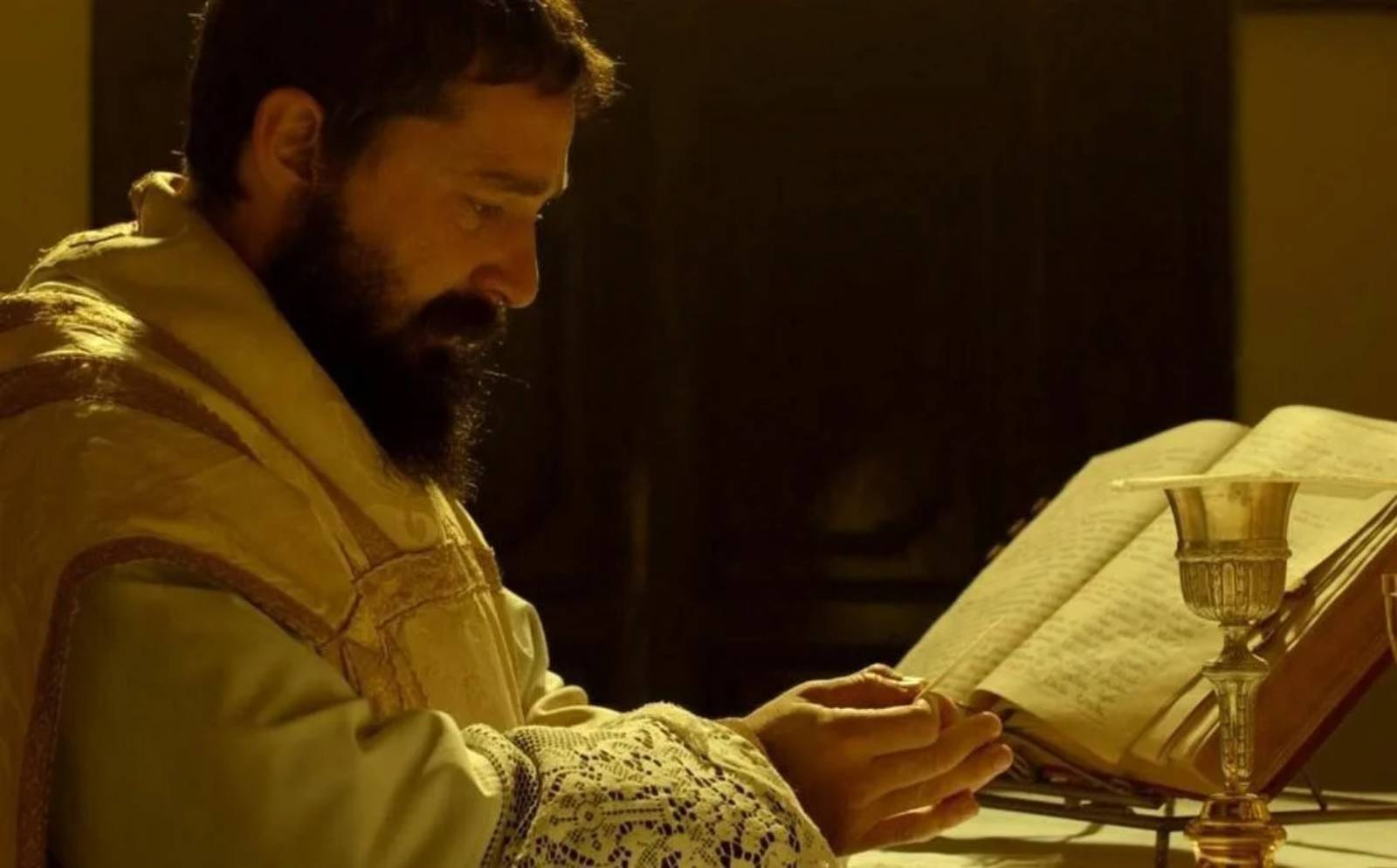
The film is grounded in the reality of Italian life shortly after World War I, as socialist ideas gained currency amid calls for a transformation of society and the populace imagined a better way of life following their army’s traumatic return from the battlefield. The town of San Giovanni Rotondo, located in the country’s southeast, is conceived by Ferrara and first-billed co-screenwriter Maurizio Braucci (who appositely worked on Martin Eden) as a microcosm of this societal shift, where the ruling class harass their charges and dispute the results of a key national election in an apt parallel to Trumpian America. – David K. (full review)
Lynch/Oz (Alexandre O. Philippe; June 2)

The Wizard of Oz has become a tradition. Synonymous with the wonder of childhood and the wonder of movies, Victor Fleming’s 1939 classic plays in homes across America every year––often cited as the most-watched film in movie history. A portion of those watches come from filmmakers who think it a sacred text, traditional source material for any story they might want to tell. One of those filmmakers is David Lynch, populist surrealist actor, writer, artist, musician, and director. Lynch/Oz explores the connection between the famous film and dream-focused director. – Michael F. (full review)
Shadow Kingdom (Alma Har’el; June 6)

Your local Bob Dylan obsessive has surely mentioned Shadow Kingdom, the 2021 concert film that saw him rework an assortment of earlier songs––some established (“Forever Young,” “It’s All Over Now, Baby Blue”), some deeper in the back catalogue (“The Wicked Messenger,” “What Was It You Wanted”). One case (“To Be Alone with You”) marked an almost-total rewrite, and courtesy the end credits (which we now know is called “Sierra’s Theme”) an entirely new track. A smorgasbord for Dylanologists, enough to write home for, but greater still that the film component (directed by Alma Har’el and shot by Lol Crawley) is a smoky, dark––yes, shadowy––achievement all its own. It also sat on some weird service for the short duration paying customers could even access it, seemingly left to be a fun memory from a strange summer. Event of events, then, that Shadow Kingdom will be available to rent or buy on June 6. – Nick N.
Blue Jean (Georgia Oakley; June 9)
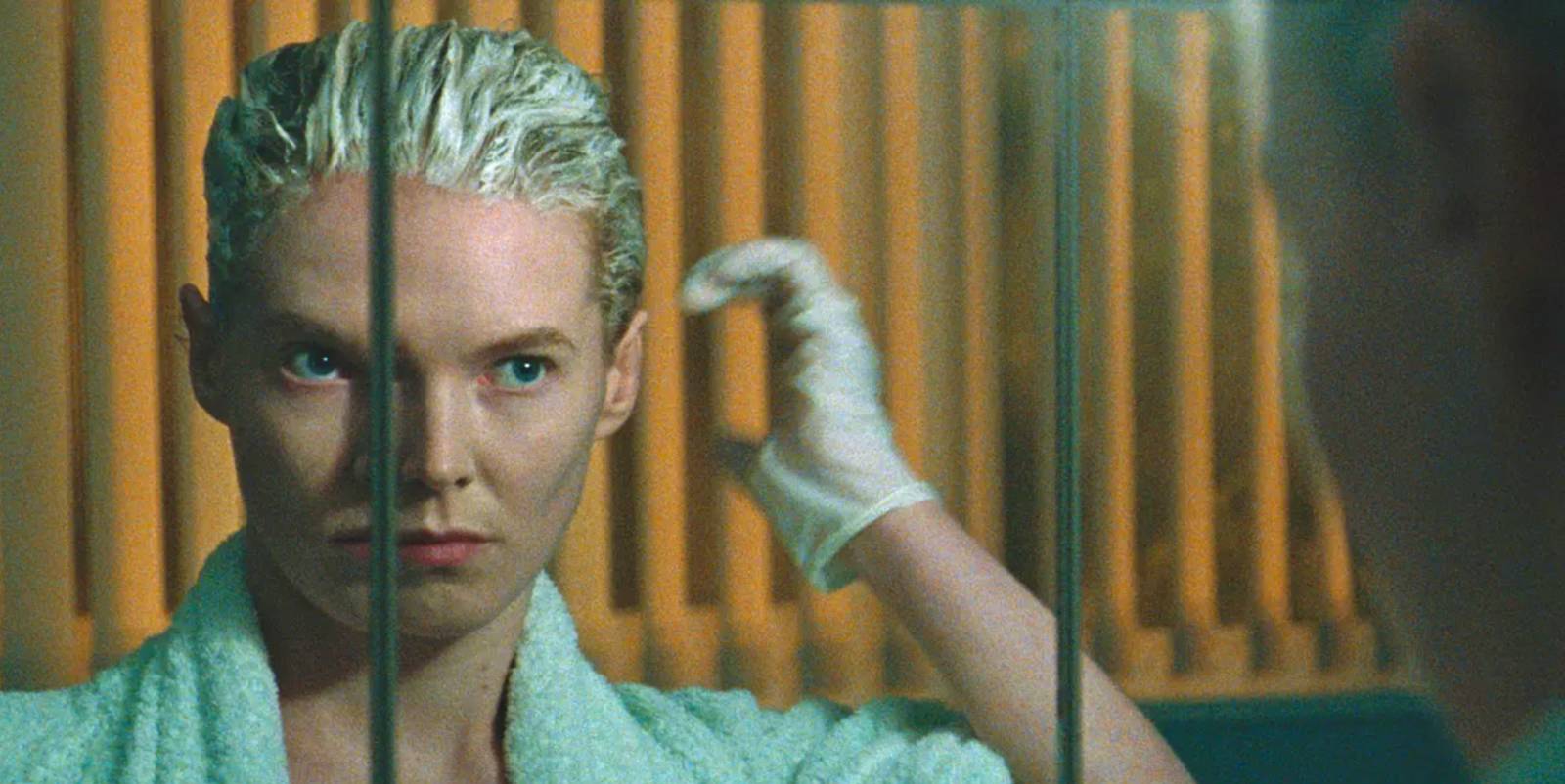
The Blue Jean of David Bowie’s 1984 hit was a girl with “a camouflage face,” not unlike the singer and the two personas he splintered into for the song’s video: a djinn-like rockstar dancing onstage and his ordinary, besuited doppelganger watching from below. So it is for the young woman at the center of Georgia Oakley’s own Blue Jean. A PE teacher stranded in Tyneside, England, Jean (Rosy McEwen) is a divorcée in a same-sex relationship that no-one––least of all her pupils and co-workers––must ever know about. For the year is 1988 and Britain’s grappling with the revolting aftermath of Section 28. The bill passed by Thatcher’s government banned “the promotion of homosexuality” by local authorities, forcing people like Jean into hiding. Camouflaging––its costs and consequences––is at the cornerstone of Oakley’s frank, often quite gripping feature debut. If Blue Jean does not debunk or reinvent new tropes in its tale of self-acceptance (does it have to, anyway?) it still radiates a rebellious energy, courtesy McEwen’s riveting performance and Oakley’s ability to never make her outcasts feel like lessons. – Leonardo G. (full review)
Scarlet (Pietro Marcello; June 9)

In his previous film Martin Eden, and now with Scarlet, Pietro Marcello has found a novel way to depict artistic striving, closely tying it with the concept of labor. It’s also something that runs through Jim Jarmusch’s Paterson, about the poetry-penning bus driver of the same name: both filmmakers have helped demystify our idea of the artist as a potential “great man of history” and the deification often accorded them. The would-be literary maven of Martin Eden and two artist-craftsmen of Scarlet are engaged instead in a noble struggle, a bit like the eternal workers’ struggle of Marcello’s other chief interest: that of leftist political thought. – David K. (full review)
Brooklyn 45 (Ted Geoghegan; June 9)
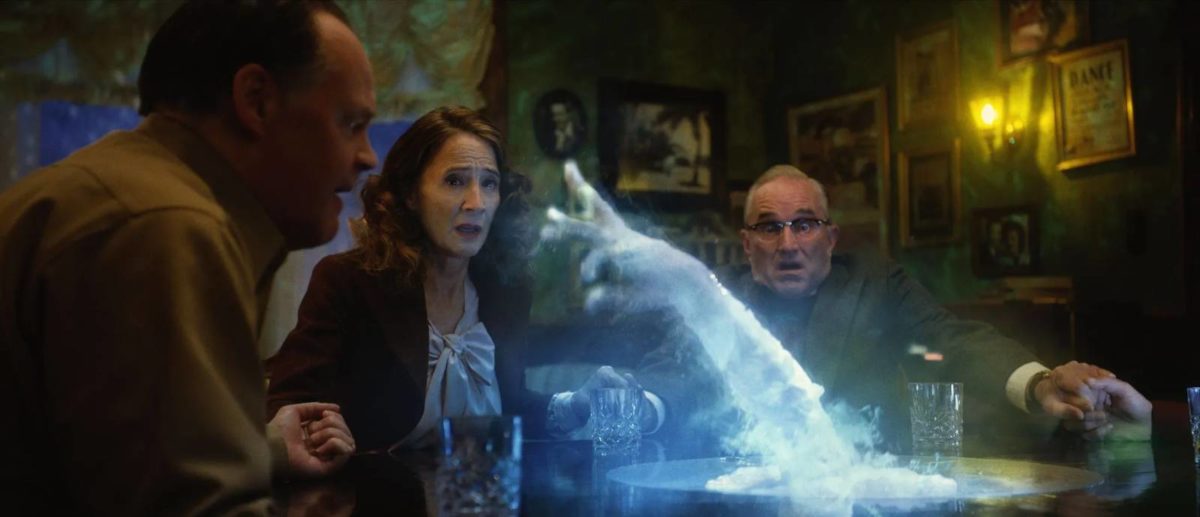
It’s supposed to be a nostalgic, supportive night. On December 27, 1945, five military veterans and friends from childhood gather inside a Brooklyn brownstone to reminisce about old times, celebrate the end of World War II, and comfort a grieving host whose wife has recently passed. But what starts with sentimental banter and a strong whiskey buzz quickly spirals into an unexpected séance that conjures the paranormal, sparks some paranoia, and builds to a possession that seems hell-bent on staining the wood-paneled parlor with as much blood as possible. That’s the fun, gory, alarming premise behind Brooklyn 45, Ted Geoghegan’s third feature film that asks a lot of heavy questions in-between its abrupt moments of splatter. – Jake K. (full review)
Asteroid City (Wes Anderson; June 16)

Expanding his formal dexterity in fascinating ways with The French Dispatch, Wes Anderson is returning with two new films this year, the first of which will arrive in theaters soon after its debut at the Cannes Film Festival. Shot in Spain, standing in for a fictional American desert town, the 1955-set Asteroid City follows a convention in which world-changing events occur. Amongst another particularly star-studded cast for the director, we are curious to see Tom Hanks, Margot Robbie, Scarlett Johansson, Matt Dillon, and Hong Chau make their debuts in Anderson’s detailed cinematic universe. – Jordan R.
Revoir Paris (Alice Winocour; June 23)

While she had been working for two decades, Virginie Efira received much-deserved wider acclaim leading Benedetta and Sibyl a few years back. She’s back this year with a pair of staggeringly great performances, in Rebecca Zlotowski’s Other People’s Children and Alice Winocour’s Paris Memories. The latter, for which Efira earned the César for Best Actress, follows her character trying to pick up the pieces of her life after experiencing a terrorist attack in Paris. Also starring Pacifiction‘s Benoît Magimel and Claire Denis regular Grégoire Colin, the drama is another example of Winocour’s mastery for immersing her audience in the headspace of her character with stellar sound design and precise cinematography. – Jordan R.
Desperate Souls, Dark City and the Legend of Midnight Cowboy (Nancy Buirski; June TBD)

Desperate Souls, Dark City and the Legend of Midnight Cowboy professes to be something more than just a film about the making of Midnight Cowboy. Nancy Buirski’s latest work is an extremely ambitious documentary that attempts to navigate the impact and cultural presence of the legendary film while also exploring the history of queer cinema, the death of the western, and the counter-culture of the ’60s transforming into the nihilism of the 1970s. It packs a lot of information and perspectives into 101 minutes and while it doesn’t explore each subject with the perfect amount of depth, its sheer enthusiasm for the film and the cultural period is infectious. By the end there’s a sense of sadness that its shaggy pleasures are now in the past. A worthwhile endeavor for anyone interested in 1960s cinema and one of its greatest offerings. – Logan K.
Earth Mama (Savanah Leaf; July 7)

Conceived with a remarkable amount of filmmaking confidence, Savanah Leaf’s directorial debut Earth Mama follows the trials and tribulations of a pregnant single mother struggling to get by day-to-day, restricted to seeing her other two children, currently in foster care, only one hour per week during supervised visits. With a history of drug addiction, she must find her way through a system that stacks the odds against her, exploring the possibilities of adoption and the pain of knowing the court may immediately take away her soon-to-be-born baby. It’s a difficult, demanding portrait of a life in shambles, susceptible to being relegated to poverty porn or a social-realistic bent that surrenders to one-note misery. It’s a miracle, then, that Olympian-turned-director Leaf finds both the humanity and beauty of every frame, bringing empathy to an impossible situation and delivering an abundance of grace notes. – Jordan R. (full review)
Joy Ride (Adele Lim; July 7)

Often hilarious and moving, Adele Lim’s anticipated directorial debut Joy Ride takes the girls-trip formula (see: Bridesmaids and, of course, Girls Trip) in both new and familiar directions, crossing borders and breaking boundaries. Meeting as the only two Asian kids on the playground in a Norman Rockwell-esque, all-white town in the Pacific Northwest (aptly named White Falls), Audrey and Lolo become fast friends. But they couldn’t be any more different––while Audrey’s adoptive but somewhat uncomfortable guardians (David Denman and Annie Mumolo) encourage her academic pursuits and law career, Lolo’s successful parents accept her as a rebel artist making work about sexual liberation in everyday objects. – John F. (full review)
Mission: Impossible – Dead Reckoning Part One (Christopher McQuarrie; July 14)
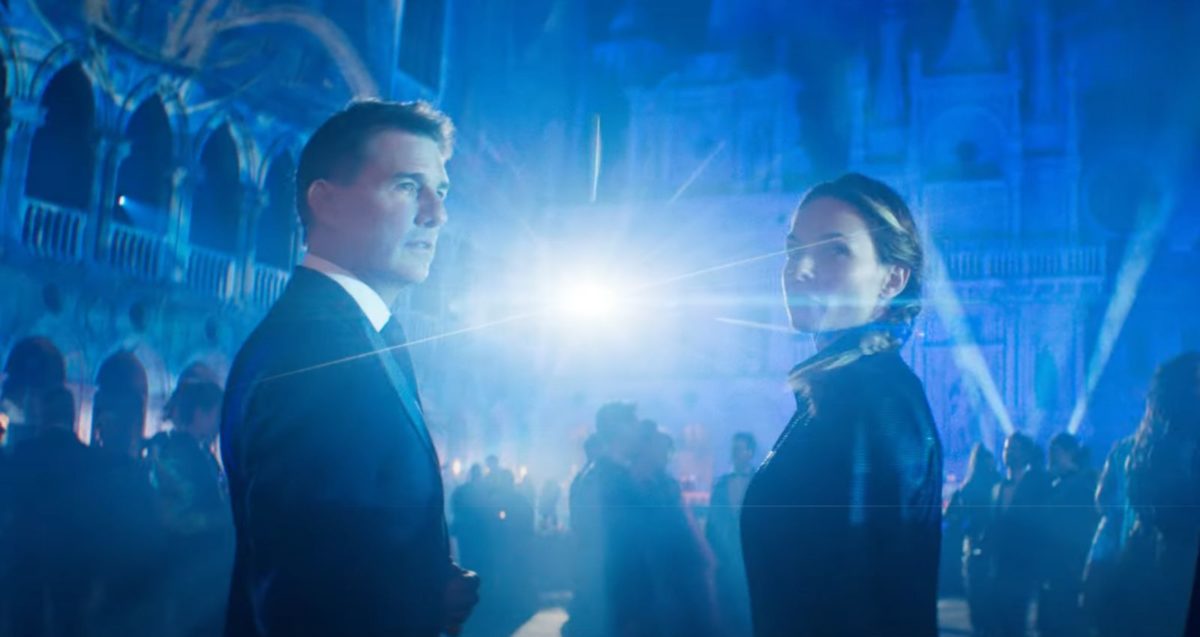
Tom Cruise and Christopher McQuarrie’s penultimate entry into Hollywood’s most propulsive franchise looks to be the blockbuster of the summer. Cruise has altered the course of his career over the last 10-15 years through a reckless disregard for his own well-being, upping the size and stakes of his audacious stunts with every subsequent performance. Dead Reckoning looks to continue this trend, with reports of exploding bridges, burning motorcycles, and speeding trains coming from production. It will be difficult to top 2018’s Fallout, but McQuarrie’s steady hand and Cruise’s death wish should make a lethal combination. – Logan K.
Afire (Christian Petzold; July 14)

Writing recently about the introduction of video umpires in baseball, of all things, Zach Helfand was skeptical: “accuracy is not the same as enjoyment,” he wrote, “baseball is meant to kill time, not maximize it.” The best films of German director Christian Petzold do both, though you sense his heart might belong to the latter. Petzold’s latest, Afire, unfurls with all the page-turning seduction of a gripping novella. It stars Thomas Schubert as a struggling writer who travels with a friend to a secluded house near the Baltic Sea. Their car breaks down. They encounter a beautiful woman. Somewhere in the distance, a forest fire rages. Soon, inevitably, another burns inside. – Rory O. (full review)
Barbie (Greta Gerwig; July 21)

After directing two of the most acclaimed films of the 2010s, Greta Gerwig being attached to an adaptation of Barbie, co-written with Noah Baumbach, initially sounded like a bleak assimilation of talent for the sake of corporate filmmaking. But with the combination of Demy influences, dazzling set pictures, and a creative first trailer, optimism has sparked for the project, with hopes it’ll be a subversive, surreal comedy. And the charismatic duo of Margot Robbie and Ryan Gosling as Barbie and Ken, respectively, will almost certainly lead to laughs. – Logan K.
Oppenheimer (Christopher Nolan; July 21)

You may have loved Tenet; I did not. Its overabundance of narrative exposition and plain gobbledygook––whatever overeager spin you put on “Temporal Pincer Movement” has never made it sound cool––that never cohered, or for that matter got buried in a horrible sound mix, suggested creative dead-ends. If turning to a biopic of infamous genius and destroyer of worlds J. Robert Oppenheimer now suggests simplification, Oppenheimer‘s first trailer also evinced expansion in completely unexpected ways. (My God, did Christopher Nolan learn about avant-garde cinema?) Whatever else, black-and-white IMAX film will look superb. And okay: we’re wondering just what the fuck Nolan meant when he claimed to recreate a nuclear explosion sans CGI. – Nick N.
Talk to Me (Danny and Michael Philippou; July 28)

Featuring a great premise from which to build a franchise, YouTube creators Danny and Michael Philippou’s directorial debut Talk To Me is a refreshing retread, imagining tantalizing “micro-possessions” that get stronger the more you use them. The premise is simple enough: a possessed hand that seems to have been passed down for generations opens a supernatural portal to the unknown, which can offer a brief moment of clarity before it inflicts unthinkable violence. As far as the violence goes, the film checks all the boxes with a murder/suicide opening sequence at an out-of-control house party, setting the affair in motion without giving away what’s to come. – John F. (full review)
War Pony (Riley Keough and Gina Gammell; July 28)

Riley Keough was working on American Honey in South Dakota when she met a couple locals who’d been cast as extras: Bill Reddy and Franklin Sioux Bob. They hit it off and immediately became friends outside production. Bill and Frank invited her to their home, Pine Ridge, and Keough and co-director Gina Gammell––who started a production company, Felix Culpa, together in 2018––quickly fell in love with the people and the land. Next thing you know, it’s 2019 and Felix Culpa is in production on its first feature. – Luke H. (full review)
Kokomo City (D. Smith; July 28)

Brimming with style and intimacy, the simple conceit of D. Smith’s directorial debut allows space for its subjects––four transgender sex workers––to tell their stories with an entertaining and moving amount of humanity. Ranging from the harrowing dangers of their profession––only amplified by the recent devastating news of the murder of one of the film’s subjects, Rasheeda Williams aka Koko Da Doll––to the power held in satisfying their clients’ desires to delivering a humorous frankness in recalling certain stories, Kokomo City is a captivating window into lives often silenced. – Jordan R.
Our Body (Claire Simon; Aug. 4)

Claire Simon cites Frederick Wiseman’s Hospital (1970) and Near Death (1989) as key sources of inspiration for her latest film, and for much of its 168-minute runtime Our Body does function, à la Wiseman, as a study of an institution––in this case, the various units of a public hospital in Paris where women receive all manner of care, including treatment for pregnancy, fertility, gender transition, cancer, and end-of-life needs. Simon and her all-female crew observe their subjects in close-up; except for occasional establishing shots in hallways and the garden courtyard, the camera is seldom more than a few feet from the women and one trans man, their companions, and the doctors, nurses, and technicians who all perform their jobs with uncommon professionalism and grace. That the camera is likely capturing an idealized version of the daily grind of modern healthcare––every person we see has signed a waiver and is presumably putting on their best face––is mostly beside the point, because Simon is interested primarily in the strange, beautiful, holy machinery of bodies. – Darren H.
Passages (Ira Sachs; Aug. 4)

Taking the Scorsese wisdom of “more than 90% of directing a picture is the right casting” to heart, Ira Sachs’ radiantly sexual three-hander Passages couldn’t have assembled a finer trio of actors to explore modern love in all its splendor and messiness. Tomas (Franz Rogowski), a German filmmaker finishing up his latest shoot, is married to Martin (Ben Whishaw), but when Agathe (Adèle Exarchopoulos) comes into Tomas’ life, his world is torn asunder with a fiery passion. In his most mature and focused work to date, Sachs stays mostly centered on Tomas as his shifting heart gets pulled in different directions, Rogowski’s fierce magnetism transfixing the viewer even as his character’s behavior grows all the more erratic. – Jordan R. (full review)
What Comes Around (Amy Redford; Aug. 4)

What Comes Around is a tricky film to talk about without massive spoilers unless, of course, the eventual marketing campaign decides divulging its secrets will help them sell it. I’m hoping they ultimately choose to keep its twists and turns under wraps because going in blind adds a dimension that I’m sure playwright Scott Organ (who adapts his own “The Thing with Feathers”) intended and director Amy Redford matches. As she mentions in the press notes, What Comes Around is about provocation. It’s about telling us one thing only to transform it into another thing and spark a conversation that many of us still might not want to engage in. It’s about exploiting one’s power over another and falling prey to theirs. It’s about double standards. It’s about control and debilitating shame. – Jared M. (full review)
The Eternal Memory (Maite Alberdi; Aug. 11)
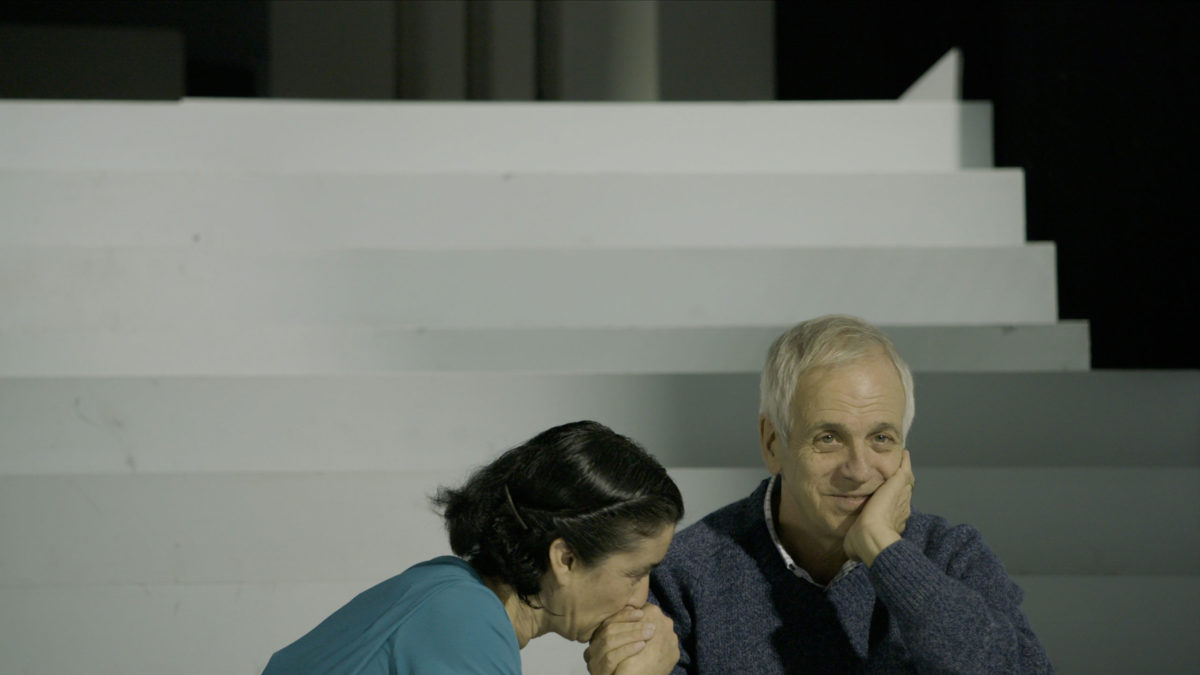
Filmmaker Maite Alberdi seems keen to remind us non-fiction cinema can belong to different genres rather than reinforce some notion that they are a genre unto themselves. In the delightful The Mole Agent she delivered a thriller of the absurd; a bittersweet detective movie in which an elderly man infiltrates a nursing home where there are suspicions of elderly abuse. With The Eternal Memory, she tackles romance and tells one of the most moving love stories in ages. – Jose S. (full review)
Before, Now & Then (Kamila Andini; Aug. 25)

In Before, Now & Then the social and political upheavals of 1960s Indonesia provide a hardened backbone to what is otherwise a tale of longing and simmering romance. It’s the fifth work by Kamila Andini, an Indonesian filmmaker whose dreamy 2017 film Seen and Unseen became a festival darling, screening in Berlin and Toronto that year to acclaim. Before, Now & Then sees her return to the German capital––premiering in competition this week, a sharp ascendency––with her most ambitious film yet. Drawing a number of deeply felt performances from her cast, it is an aching period piece, if frankly staid, that comes complete with many of the genre’s most reliable tropes: sharp intakes of breath; glances stolen through laced curtains; and love, as ever, in opprobrium. – Rory O. (full review)
Scrapper (Charlotte Regan; Aug. 25)

It feels serendipitous that Scrapper, a somber slice-of-life British melodrama, screened at the Sundance Film Festival just days after hysterical reporting on Prince Harry’s book, Spare, and the announcement of King Charles’ coronation plans. Finding it a bit hard to sympathize and identify with––or care about––the ongoing drama surrounding the U.K.’s Royal Family? You can bet the characters in Scrapper wouldn’t care less, either. Audience members watching Charlotte Regan’s film will, however, care deeply about 12-year-old Georgie and her existence on the outskirts of London. – Chris S. (full review)
Bottoms (Emma Seligman; TBD)

It’s beginning to feel like South By Southwest is the Rachel Sennott Festival. After breaking out there three years ago with Shiva Baby (the movie premiered as a short in 2018 and would have again as a feature in 2020 if not for the pandemic), she made waves last year in Austin with sleeper horror hit Bodies Bodies Bodies. Now Sennott’s back with Bottoms, one of two new movies she’s headlining this week, and which adopts many characteristics of an SXSW offering: it’s gay, it’s bloody, and it’s horny. – Jake K. (full review)
Problemista (Julio Torres; TBD)
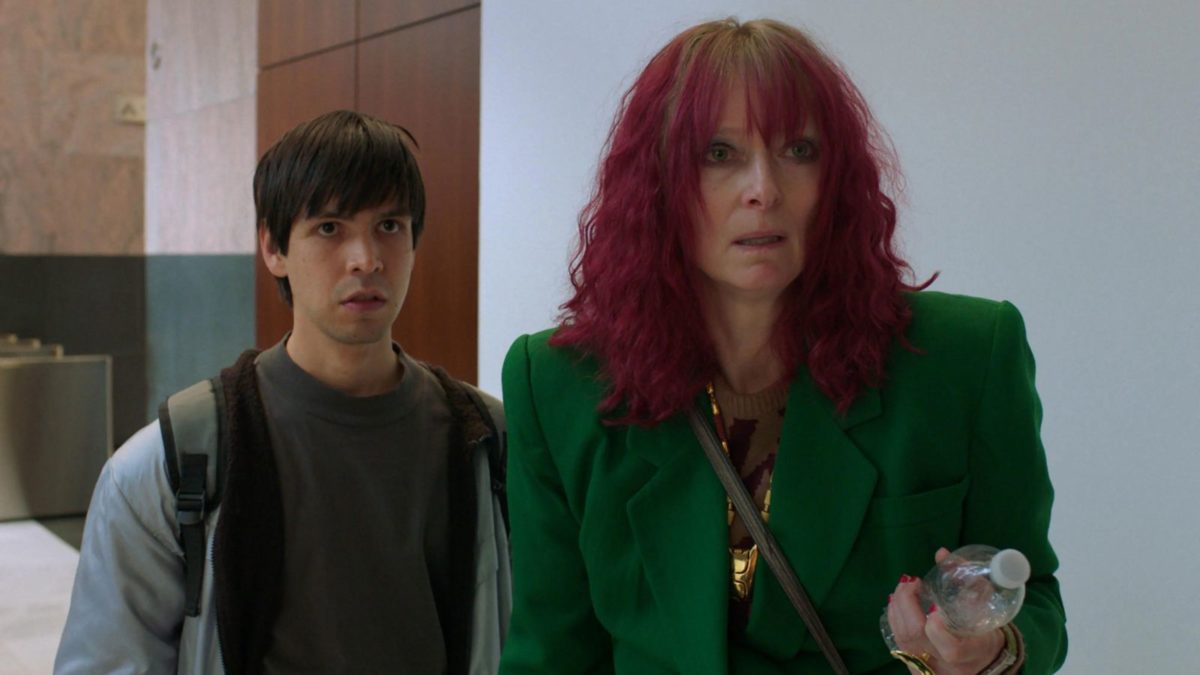
In Problemista, Torres’ feature-length writing and directing debut––loosely based on his own struggles as an immigrant––everything is just slightly off-kilter. Consider the single clump of hair that sticks out from his character’s head, or the way he walks, almost bouncing with each step as if gravity’s pull had lessened by a fraction. They’re details that help fill out a magic-realist vision of a Salvadorian’s attempt to keep his green card status and pursue his niche passion in New York City. They also provide a humorous glow to a story about preservation, creativity, and the courage to fight off corporate entities attempting to dismantle those individual concerns. – Jake K. (full review)
More Films to See
- The Melt Goes on Forever: The Art & Times of David Hammons (May 5)
- STILL: A Michael J. Fox Movie (May 12)
- The Night of the 12th (May 12)
- Monica (May 12)
- White Building (May 19)
- Victim/Suspect (May 23)
- The Fire That Took Her (May 23)
- Close to Vermeer (May 26)
- Spider-Man: Across the Spider-Verse (June 2)
- After Sherman (June 2)
- Falcon Lake (June 2)
- Flamin’ Hot (June 9)
- Squaring the Circle (June 9)
- The Blackening (June 16)
- No Hard Feelings (June 23)
- Indiana Jones and the Dial of Destiny (June 30)
- Passengers of the Night (June 30)
- Biosphere (July 7)
- Final Cut (July 14)
- 20 Days in Mariupol (July 14)
- Theater Camp (July 14)
- A Compassionate Spy (August 4)
- Birth/Rebirth (August 18)
- Mutt (August 18)
- Untitled Please Don’t Destroy Movie (Aug. 18)
- The Pod Generation (TBD)
